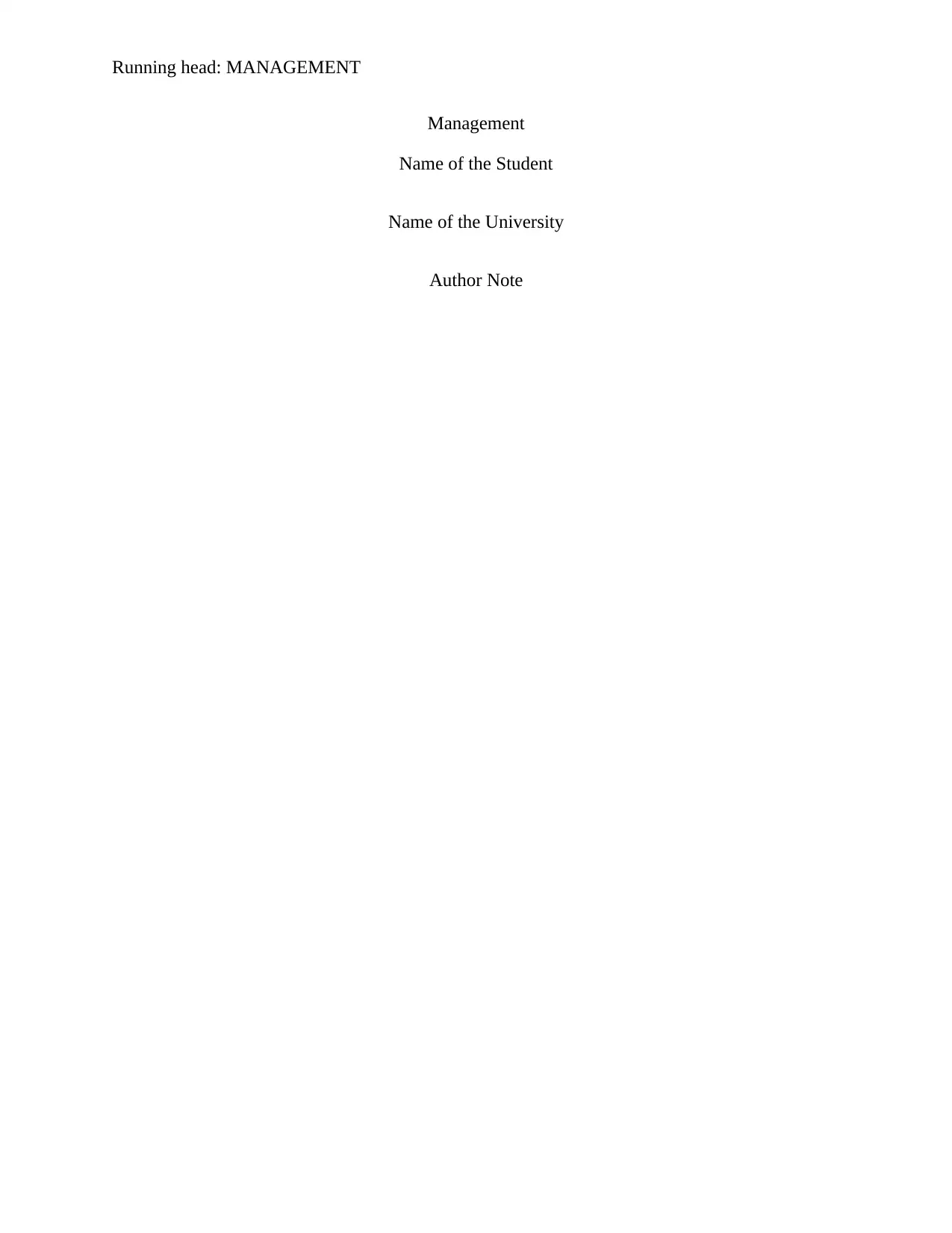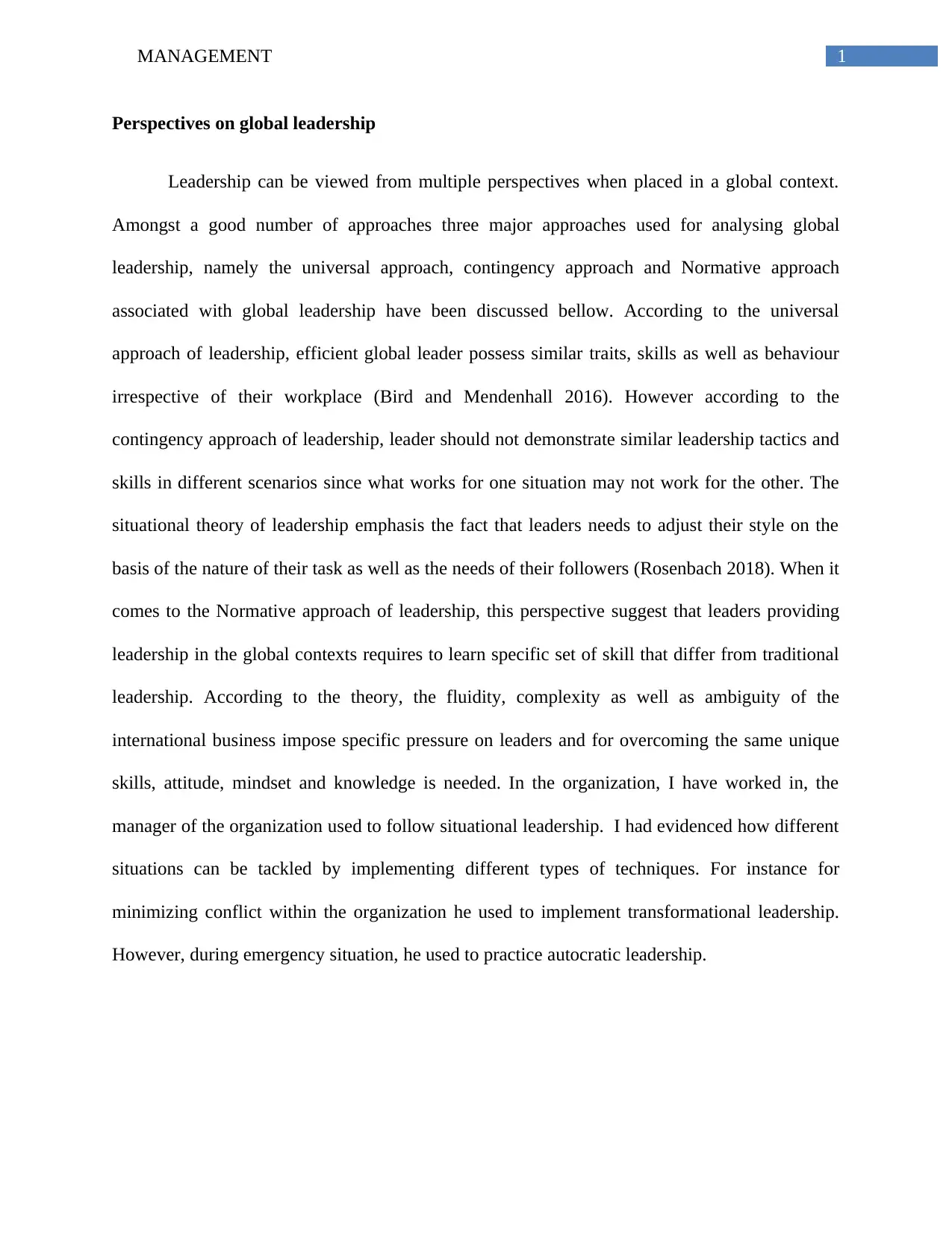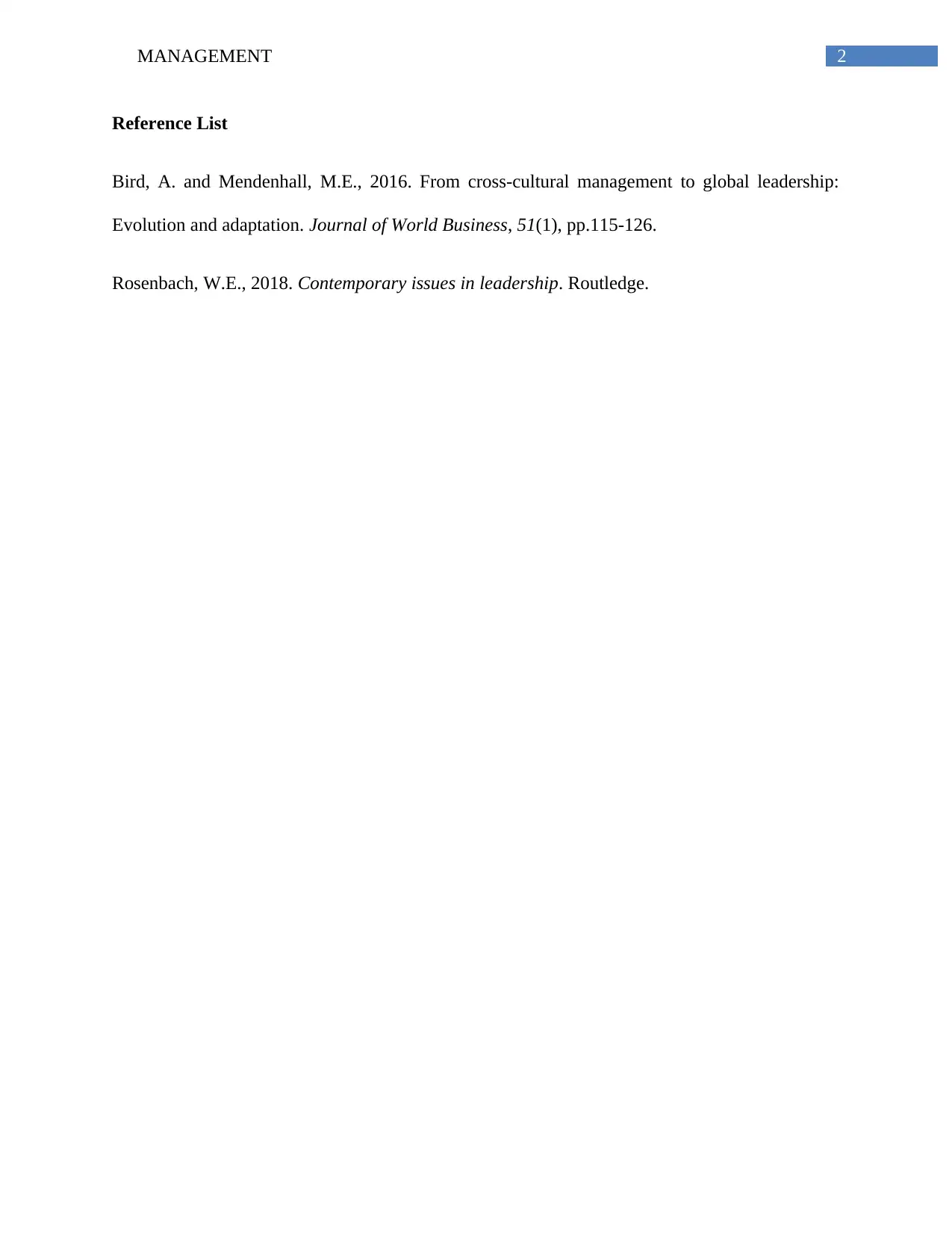Managing in International Contexts: Global Leadership Report
VerifiedAdded on 2023/01/17
|3
|357
|88
Report
AI Summary
This report examines global leadership from multiple perspectives, including universal, contingency, and normative approaches. It explores how these perspectives influence management, leadership, and careers in international contexts. The report discusses the importance of understanding global business environments and the impact of cultural differences on leadership styles. It also presents a case study of how situational, transformational, and autocratic leadership styles can be implemented in an organization to manage various situations. The report emphasizes the need for leaders to adapt their approaches to suit the specific demands of the global business environment. It provides insights into the skills, attitudes, and mindsets required for effective leadership in international contexts, including an analysis of the UTS Business: Managing in International Contexts course.
1 out of 3









![[object Object]](/_next/static/media/star-bottom.7253800d.svg)